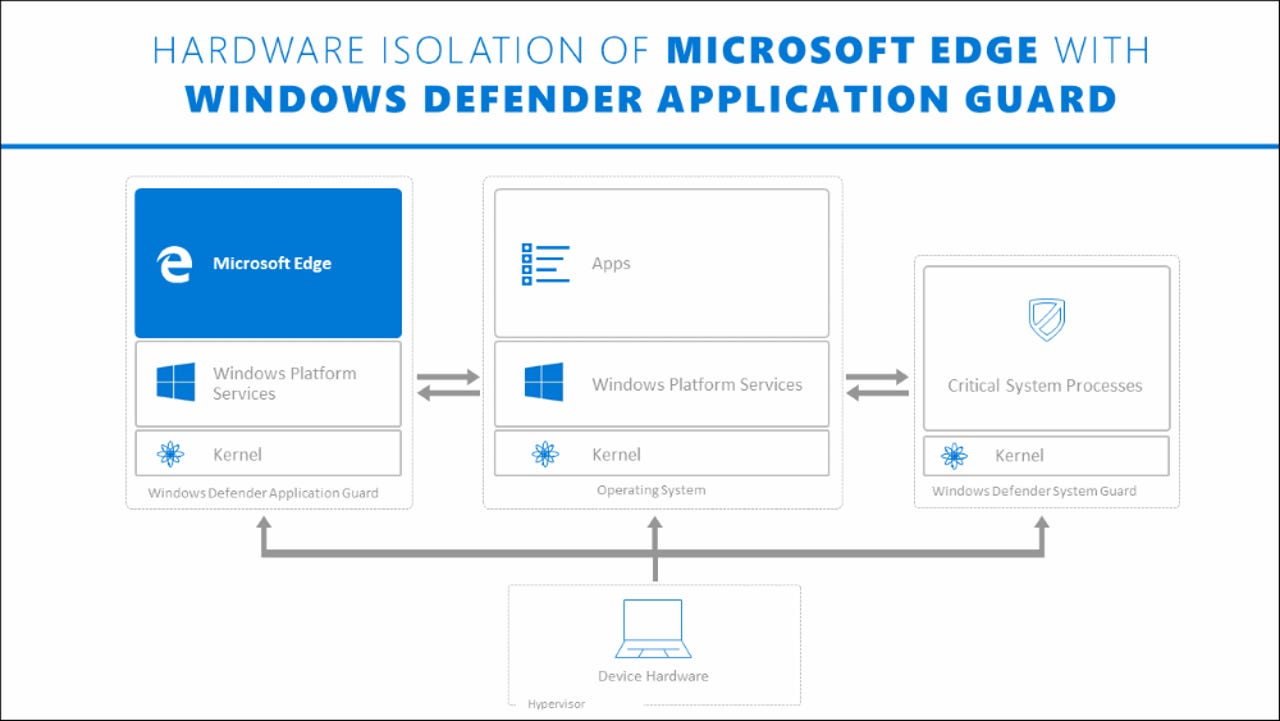Microsoft releases Application Guard extension for Chrome and Firefox

Microsoft released this week browser extensions that port the Windows Defender Application Guard technology from Edge to Chrome and Firefox.
The extensions only work for Chrome and Firefox running on current Windows Insider builds, but are expected to work with the upcoming Windows 10 stable release, 19H1, scheduled for release later this spring.
The Windows Defender Application Guard technology is a relatively new Windows Defender security feature that until now has only been available to Edge users.
According to a Microsoft help page, Windows Defender Application Guard lets enterprise administrators set up a list of trusted websites and local resources that the user can access using Edge.
If the user accesses an URL that is not on this list, Windows Defender Application Guard comes into effect and starts a sandboxed session of Edge (an Hyper-V-enabled container) where the new website will be loaded in a safe environment isolated from the rest of the Edge browser and underlying operating system.
This way, any potential attack won't be able to reach and grab the user's data, or plant malware on the local operating system.

The Chrome and Firefox extensions that Microsoft released this week allow Windows Defender to protect these two browsers in the same way it protects Edge.
Every time Chrome and Firefox users will access a website that is not a local list of admin-designated trusted websites, Windows Defender would load the untrusted URL inside a sandboxed Edge browser.
Yes, users will be pulled out of their preferred browsers like Chrome and Firefox, but this would be done for security purposes only.
All the Chromium-based browsers
More browser coverage:
- Chrome and Firefox are borrowing from each other's performance features
- Mozilla launches Firefox Send, a free, encrypted file-sharing service
- Google Chrome 73 released with dark mode support on macOS
- Google Chrome to block automatic downloads initiated from ad slot iframes
- Google announces Chrome Lite Pages, a way to speed up HTTPS sites
- Firefox to add Tor Browser anti-fingerprinting technique called letterboxing
- What enterprises need to know about the new Chromium-based Edge TechRepublic
- Ad-blocking Brave gets memory advantage over Chrome on news websites CNET